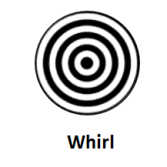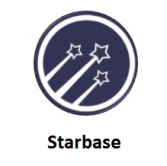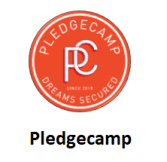
People wrongly assume that the blockchain technology’s only application is cryptocurrencies. As many industries have discovered over the last 2-3 years, blockchain technology has disruptive qualities in a variety of sectors. One of these sectors happens to be crowdfunding platform.
This sector has grown exponentially over the past decade with the rise in entrepreneurship. Entrepreneurs finally had a tool where they could raise enough funds to start creating their product without needing to go through the red-tape of traditional funding.
There are more than 375 crowdfunding platforms. North American crowdfunding volume alone totaled $17.2 billion in 2017. However, this sector is not without its flaws.
Flaws of traditional crowdfunding
Censorship: The platforms have their own rules and regulations. If projects match their ideals, then they simply get censored from the platform. While this may serve as a way to cut down on spammy projects, unfortunately, this also means that a lot of entrepreneurs with really great ideas don’t get their projects listed for violating some vaguely written terms of service.
Backers getting scammed: The crowdfunding platform is rife with scams. Many creators create a scammy project for a quick cash-grab and then disappear from the face of the earth.
🔎 The infamous Backzips is one of the most infamous examples of crowdfunding scams. Backzips had raised $159,476 from 1,495 backers. Following that, they had an Indiegogo campaign wherein Backzips picked up another $9,001, raising a total of $168,477, which was a full $133,477 over their initial goal of $35,000 when they decided to disappear.
Creators burdened by marketing: Just having a good idea for a project is not enough. It is vital to attract as many backers as possible by making your crowdfunding page more visible. Unfortunately, if the creator gets carried away with all the marketing, then they won’t be able to give their focus and attention to the actual creation of the product.
How can the blockchain help Crowdfunding?
The most significant advantage of blockchain-integration is that it imparts the ability to keep track of exchanges in a way that’s secure, publicly verified, transparent, and immutable. Plus, by leveraging decentralization, it is possible to build platforms where creators can freely list their projects without the fear of censorship.
Let’s look at some of the projects that are marrying Crowdfunding with blockchain technology.
WHIRL

WHIRL’s main aim is to build an efficient crowdfunding platform where projects get the maximum opportunity to get the funding that they need. By leveraging the blockchain technology, WHIRL allows only a limited number of campaigns to raise money at one time, maximizing their fundraising potential. A fair and transparent queuing system chooses campaigns.
As a backer in this platform, you can donate directly with crypto or fiat. In return, you’ll receive 7 karma points for every dollar you spend. If you own WHIRL’s cryptocurrency, WRL, you’ll earn 10 karma per dollar. Upon reaching 500 karma points, you will be able to submit a campaign of your own. Once your campaign has finished fundraising, your karma resets and the next campaign goes live. WHIRL anticipates that 90% of campaign creators will immediately begin the process anew.
Starbase

Starbase is a user-centric global crowdfunding and token payment platform which connects creators with people like investors, engineers, designers, or marketers who can help build and support these projects all over the world. By leveraging the platform, creators can launch their ideas by sharing long-term incentives with collaborators.
Starbase generates revenue via the following:
– Token sale fee
– Token issuance fee
– Work-payment fee
As per the Starbase website, they offer the following advantages to project collaborators:
More Earnings: Using the Starbase platform, you can accelerate your project by rewarding contributions to an interesting project. Those that work the hardest reap the most rewards.
High Liquidity: The Starbase platform brings full transparency to a project’s members and assets. Since this can be publicly verified on the blockchain, this enhances liquidity for token trading on the exchanges.
PledgeCamp

PledgeCamp is a crowdfunding platform that incorporates blockchain technology for security and accountability. They aim to utilize smart contracts to bring positive disruption into space. Unlike other blockchain-based crowdfunding platforms, PledgeCamp realized that the main component of the crowdfunding ecosystem is the backers.
The primary reason why the success rate of fully funding a project on Kickstarter is just 36.84%, is because the backers don’t have any faith in the creators to successfully or ethically complete their project.
PledgeCamp wants to give the power back to the backers by introducing “Backer Insurance.” Backers and creators enter a smart contract, wherein a portion of the funds given the backers is locked up in an escrow. The creators get access to those funds only when they fulfill certain milestones. Plus, the members of the PledgeCamp community aka “Smart Crowd,” can choose to become Moderators so that they can remove spammy projects from the platform.
On top of that, to make sure that creators have enough time to focus solely on their projects, PledgeCamp also uses an internal gig economy, where creators can hire members of the Smart Crowd to take care of the marketing for them.
Conclusion:
The crowdfunding space is long overdue for a significant disruption. By utilizing the blockchain technology, it will be possible to make this space more efficient and ethical. While there are a lot of promising projects out there, PledgeCamp, with their backer-first approach, is leading the charge with a robust architecture and sound tokenomics.